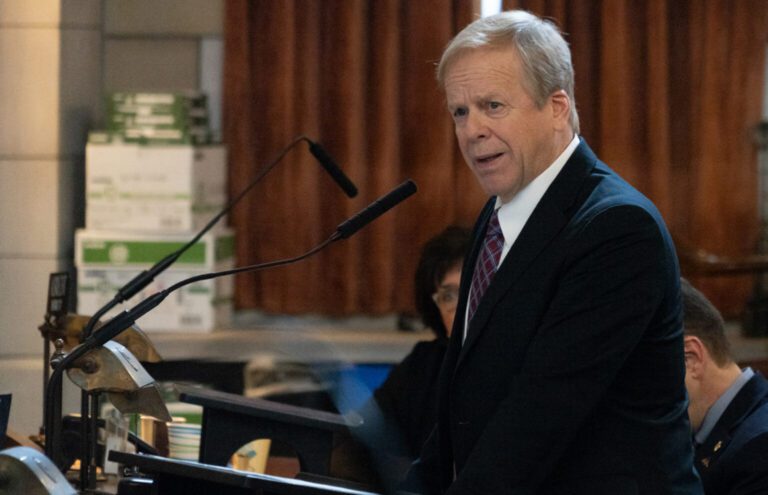🎧 Listen to This Article
OMAHA – Nebraska Treasurer Tom Briese has outlined his plan to address the state’s ongoing property tax crisis, focusing on increased state funding for education and government efficiency. With the 2025 legislative session now at its halfway point, Briese continues to push for solutions that reduce reliance on property taxpayers and ensure that funding for public education is more equitably distributed.
Nebraska’s property tax rates have been a growing concern for residents and lawmakers alike, with many arguing that the state’s heavy reliance on local property taxes to fund K-12 education is unsustainable. According to Briese, the solution lies in increasing state-level education funding, which could alleviate the burden on property owners while ensuring that schools remain well-funded.
Briese’s proposal is particularly timely, as the 2025 Legislative session has already seen discussions about potential tax reforms. Among the proposed measures is LB 170, which suggests eliminating tax exemptions on soft drinks and candy. Briese, while open to some of these changes, is clear that any tax increase must be directly linked to property tax relief.
Impact on Property Taxpayers and State Funding
Briese’s focus on education funding aims to shift the financial responsibility for K-12 schools away from property owners. By increasing state-level funding for education, the Treasurer hopes to ease the financial strain on property taxpayers, particularly in rural areas where property values are high but local funding remains limited.
“Currently, too many Nebraskans are shouldering the cost of educating our children through property taxes. We need a more sustainable funding model,” Briese explained. He believes that a long-term, state-funded education system will not only provide more predictable tax rates but will also improve the quality of education across the state.
However, Briese has been cautious about proposals that could lead to broader tax hikes. While he supports the removal of certain exemptions, such as those on soft drinks and candy, he emphasizes that these funds must be earmarked specifically for property tax relief. “If we are raising taxes, it must be for the express purpose of giving property owners meaningful relief,” he said.
Government Efficiency and Potential Savings
In addition to funding reforms, Briese is optimistic about significant savings within the state’s government operations. Last summer, an independent review conducted by Epiphany Associates found that Nebraska could save up to $531 million through improved government efficiency. Briese sees this as an opportunity to reduce waste and enhance services without increasing taxpayer burdens.
“The review identified millions in potential savings, and the goal is not to cut services, but to improve government operations and make them more cost-effective,” Briese said. The Treasurer is pushing for these savings to be reinvested into education and property tax relief, ensuring that taxpayers get more value for their money.
As the legislative session continues, Briese’s office will continue to advocate for increased state funding for education and a focus on government efficiency. While proposals like LB 170 are still being debated, Briese’s position remains clear: any changes to the tax system must prioritize property tax relief and benefit the state’s residents directly.
With property tax relief as his primary objective, Treasurer Tom Briese is pushing for reforms that would reduce the burden on Nebraska’s property owners while ensuring that schools receive adequate funding. By advocating for more state-level funding for education and pushing for greater government efficiency, Briese hopes to bring long-term, sustainable relief to taxpayers.
For further details, clarification, contributions, or any concerns regarding this article, please contact us at editorial@tax.news. We value your feedback and are committed to providing accurate and timely information. Please note that our privacy policy will handle all inquiries



